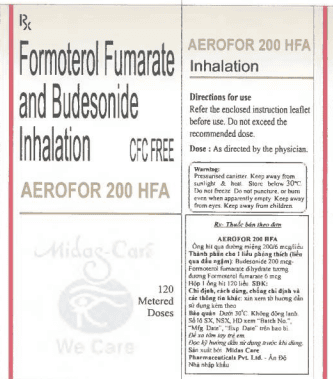This is an automatically translated article.
Overexertion makes the body aching, causing serious problems and difficult to recover from. To avoid the negative effects of overexertion on health, let's take a look at the signs and precautions in daily life.
1. How does trying too hard affect people?
Overuse injuries affecting the neck and back are the most common, contributing to chronic pain in the upper and lower back. If you have an overexertion injury, this can affect both your personal and professional life in different ways as follows:
Requires time off work to recuperate; Inconvenience in some physical work; Interfering with sports and exercise; There may be a higher risk of re-injury, even after the injury has healed.
2. What are the signs that the body is trying too hard?
When we try for too long , we may notice the following symptoms :
Feeling dizzy ; Feel hurt; Feeling hot; Excessive sweating; Abdominal pain ; Chest pain...; High heart rate, fast heartbeat. If you feel an irregular heartbeat for more than 30 minutes or have chest pain, call 911 immediately.

Bạn có thể gặp triệu chứng đổ mồ hôi quá nhiều khi cố gắng quá sức
3. What causes overexertion?
Overexertion can happen at home or at work or out. When your body does an unusual physical activity, you should pay attention to how you are moving your body, listen to your body, and know your limits.
Here are some of the causes of exercise that can promote overexertion:
Incorrect posture: If performing a physical activity or simply lifting something, the posture is not correct , the risk of overexertion is higher when the body is operating in the correct posture. Inappropriate working space: If the space is too tight, there won't be enough room to move properly, so there may be bumps, trying to avoid and leading to overexertion of the body. . Carry heavy loads: Listen to your body, know your limits, don't form the habit of carrying heavy loads. Because, when carrying something beyond its own capacity, the body will be at a very high risk of being exerted. Using worn tools: When tools wear out, the body has to use more force or even grip the tool the wrong way, the risk of falling into overexertion is very high. Repetitive movements: Performing the same movement over and over again without enough rest puts the body at risk of trying too hard both physically and psychologically.

Mang vác nặng có thể khiến bạn gặp tình trạng cố gắng quá mức
4. What can be done to prevent overexertion?
There are many things that can be done at home, at play and at work to prevent overexertion such as:
Warm up before exercise: Before physical activity , stretch and move the body to warm up the muscles, let the muscles stretch and adapt before strong, fast activities can help prevent muscle tension, prevent the risk of overexertion. Take breaks: When performing repetitive motions or repetitive lifting or prolonged activity, rest your body for at least 20 seconds every 20 minutes to avoid overexertion. Keep your desk up to your back: If your desk is too low, your back and neck can be at risk of straining by bending over too much. Proper movement: When performing any movement, it is important to have correct posture to help prevent overexertion. In general, lifting an object should be done as follows: Stand near the object to be lifted; Place your feet wide apart to give a firm support; Bend knees instead of hips and back; Tighten the muscles that help lift the object; When lifting, use your leg muscles to lift, not your back; Do not twist when holding heavy objects; When placing a heavy object, bend your knees to squat and then put the object down instead of bending at the hips. Maintain tools or buy new ones to avoid the strain that leads to overexertion. Use mobility aids such as trolleys or lifting devices to move heavy objects. Avoid carrying things that are too heavy because the human body is limited. Listen to your body asking for help when needed. Sometimes when handling a bulky or heavy item, ask someone else to help, if no one is available, try to split it up into multiple trips instead of trying to carry them all at once. In short, overexertion can happen at home or at work or out. When your body does an unusual physical activity, you should pay attention to how you are moving your body, listen to your body, and know your limits.
Please dial HOTLINE for more information or register for an appointment HERE. Download MyVinmec app to make appointments faster and to manage your bookings easily.
Reference sources: healthline.com, webmd.com












